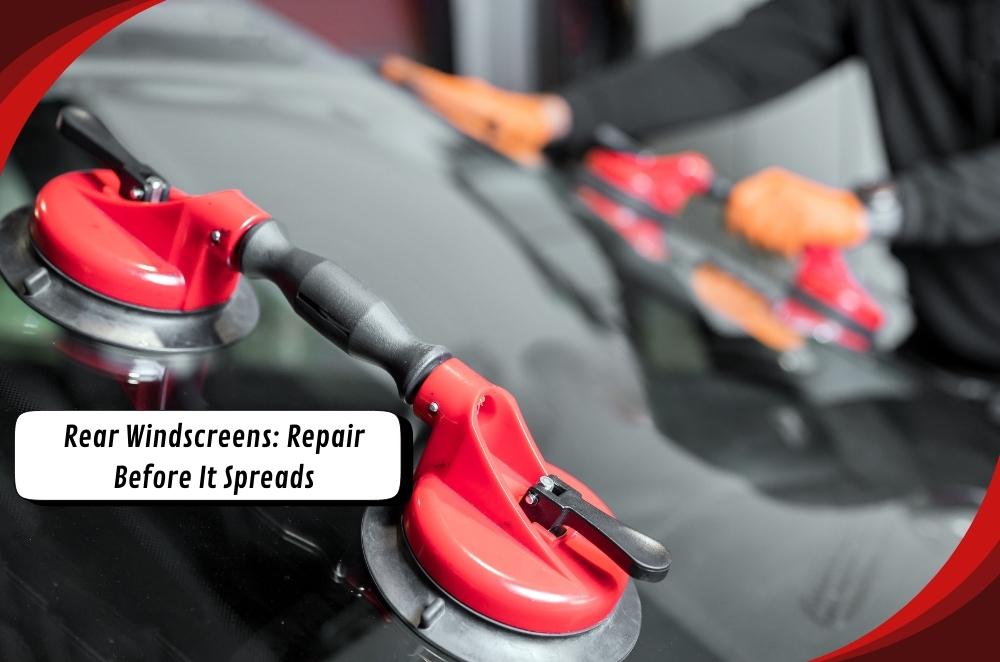Rear Windscreens: Repair Before It Spreads

Rear glass rarely breaks on your schedule. A stray stone, a fatigued wiper arm or a hot–cold snap can turn a pin-prick into a creeping crack in a day. When that happens, we don’t muck about with visibility or sealing; we book a trusted rear windscreen repair specialist who treats structural glass as safety gear, not trim. Speed matters, but so does workmanship—poor sealing invites leaks, road noise and rust. The telltale signs are simple: haze around a chip, damp carpets after rain, or a whistle at highway speeds. The fix should be tidy, OEM-grade, and finished like nothing ever happened—no fuss, just safe glass. Back on the road.
What causes rear windscreens to crack?
Mostly heat swings, edge impacts, and material fatigue. These stresses seed tiny chips that spread once vibration and moisture work into the laminate.
• Early repair prevents costly replacement.
• Fixing cracks protects demister function.
• Solid seals stop leaks and rust.
Rear glass lives hard. The demister heats bands at different rates, hatch doors flex under load, and the seal ages in sun and rain. A sharp slam or backing into flying gravel can start a flaw you won’t spot until the next morning. Early intervention helps: keep the area clean and dry, avoid pressure washers, and drive gently over corrugations until it’s assessed. For owners who like a clear plan, this rear windscreen repair checklist keeps the basics tidy—damage photos, tape to stabilise the chip, and a quick booking to prevent a simple job becoming a replacement.
How do we choose repair or replacement?
We weigh crack size, placement, and contamination. If damage reaches the edge or heater lines, replacement is the safe call; small, clean chips can be repaired.
• Correct choice ensures roadworthy visibility.
• Proper fixes keep factory tint intact.
• Safe decisions avoid repeat call-outs.
Rear screens aren’t like fronts; demister grids complicate resin flow and hatch geometry loads the glass unevenly. We also look at parts availability, tint matching, and downtime. A neat resin fill can be a great result, but only when clarity and structural integrity hold up under heat and vibration. If a replacement is needed, we’ll preserve trims, calibrate wipers, and water-test the seal, so you’re not chasing leaks or wind noise later.
When should you book rear glass work?
Sooner is safer. Fresh cracks accept resin, stay clear, and keep the seal intact; delays add grit and moisture that make repairs fail.
Fast action also protects electrics and interior fabrics. Moisture tracking from a tired seal will fog sensors, stain liners, and corrode connectors. We aim for same-day assessments so most fixes land before the weekend plans get derailed. After fitting, we road-test, confirm demister continuity, and retorque wiper hardware once the cure sets. That way, you’re back to quiet, watertight, and legal without lingering hassle. It’s exactly why rear windscreen repairs matter not just for visibility, but for the safety and comfort of every driver.
Final thoughts
Rear windscreens don’t forgive neglect. Chips become cracks, cracks become costly replacements, and safety slips along the way. Acting early keeps repairs simple, quick, and cheaper than waiting until the glass fails. The best repair isn’t flashy—it’s the one you hardly notice once the car is back on the road.
- Vibnix Blog
- Politics
- News
- Liberia News
- Entertainment
- Technology
- Éducation
- Art
- Causes
- Crafts
- Dance
- Drinks
- Film
- Fitness
- Food
- Jeux
- Gardening
- Health
- Domicile
- Literature
- Music
- Networking
- Autre
- Party
- Religion
- Shopping
- Sports
- Theater
- Wellness


